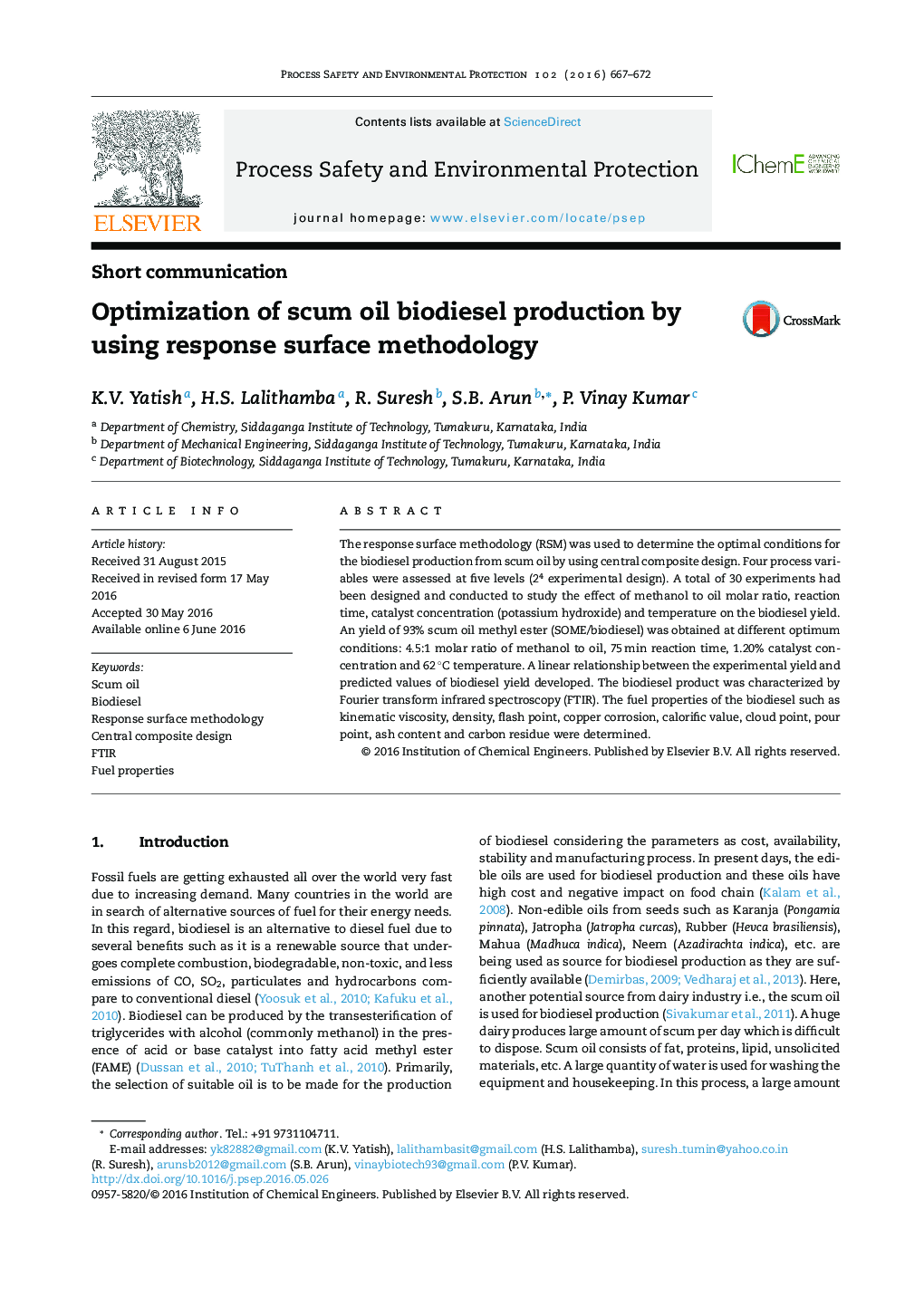| Article ID | Journal | Published Year | Pages | File Type |
|---|---|---|---|---|
| 588119 | Process Safety and Environmental Protection | 2016 | 6 Pages |
The response surface methodology (RSM) was used to determine the optimal conditions for the biodiesel production from scum oil by using central composite design. Four process variables were assessed at five levels (24 experimental design). A total of 30 experiments had been designed and conducted to study the effect of methanol to oil molar ratio, reaction time, catalyst concentration (potassium hydroxide) and temperature on the biodiesel yield. An yield of 93% scum oil methyl ester (SOME/biodiesel) was obtained at different optimum conditions: 4.5:1 molar ratio of methanol to oil, 75 min reaction time, 1.20% catalyst concentration and 62 °C temperature. A linear relationship between the experimental yield and predicted values of biodiesel yield developed. The biodiesel product was characterized by Fourier transform infrared spectroscopy (FTIR). The fuel properties of the biodiesel such as kinematic viscosity, density, flash point, copper corrosion, calorific value, cloud point, pour point, ash content and carbon residue were determined.
